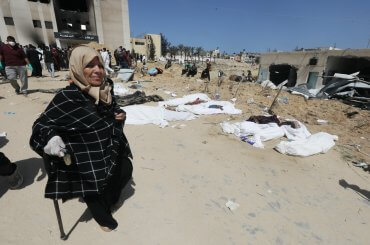Never heard of this book (found out about it on JSF). And here is an excerpt of American-born Mike Marqusee's memoir, If I Am Not for Myself: Journey of an Anti-Zionist Jew, published last year:
I'm not sure exactly when or how I began to doubt. But I remember
what happened the first time I expressed that doubt. It was a few
months after the '67 war. A special visitor came to our Sunday [Hebrew] school
class. He was in his early 20s, with thick fair hair falling over his
forehead, a snappy sports jacket and polished loafers. Some of the
girls whispered that he was cute. He had an accent but it was nothing
like our grandparents' accents. He looked and dressed like us but he
had been a soldier in a war and that made him an alien being. Smiling,
he perched himself casually on the front of the teacher's desk and told
us about the remarkable achievements of the Israeli army. He told us
that the Arabs had planned a sneak attack but had met with more than
they bargained for. They were bad fighters, undisciplined soldiers. And
they were better off now, under Israeli rule. "You have to understand
these are ignorant people. They go to the toilet in the street."
Now
something akin to this I had heard before. I had heard it from the
white southerners I'd been taught to look down upon. I had heard it
from people my parents and my teachers described as prejudiced and
bigoted. So I raised my hand and when called upon I expressed my
opinion, as I'd been taught to do. It seemed to me that what our
visitor had said was, well, racist.
I felt the eyes of the
teacher and the other kids turn on me. They were used to me spouting
radical opinions but this time I had gone too far….
I can't remember how
long it was after that that I decided to share this experience and my
thoughts on it with my family. This was something I was usually
encouraged to do. We were sitting around the dinner table – all seven
of us. I launched into my story about the Israeli in Sunday school and
how what he said was racist. I had been thinking about the matter and
now added, for my family's benefit, a further opinion. It was wrong for
one country to take over another, or part of another, by military
force. If the US was wrong in Vietnam – and that was a given around our
dinner table – then Israel was wrong in taking over all that Arab land….
For some time I remained unaware
that my father was listening to me not with approval but with rising
fury. When he barked, "Enough already!" the shift was disturbingly
abrupt…. "I think
you need to look at why you're saying what you're saying," he said, and
then the softness vanished. "There's some Jewish self-hatred there."
I
felt then – and still feel now, when I look back – deeply and
frustratingly misunderstood. My motives had nothing to do with
self-hatred or any feeling about being Jewish. Nor did they have
anything to do with compassion for a people – the Palestinians – about
whom I knew nothing. I was merely following, as best I could, and in
typical 14-year-old fashion, what seemed to be the dictates of logic.
If in following them, the results appeared to defy assumptions, then
that just made them more curious and compelling. Judging people by
their colour or religion was wrong. Racism – making a generalisation
about a whole people, stereotyping a whole people – was wrong. Taking
over other countries was wrong, even if they attacked you (it was years
before I learned that it was Israel that had launched this war,
justified at the time by Abba Eban, American liberal Jewry's favourite
Israeli, as a "pre-emptive" strike). Among the shibboleths I was
brought up on was the belief that "my country right or wrong" was
wrong….
Some might by now have
concluded that the roots of my anti-Zionism lie in oedipal trauma. For
sure, this was a deeply distressing incident. Later, I looked back on
it as my first political disagreement with my father. Later still, as
one of a number of raw episodes in our relationship, most of which had
nothing to do with politics. Now, looking again at the history behind
this incident, I see more clearly why the opinions I was expressing
would have infuriated nearly everyone in my father's milieu in those
days. To me, they were a logical development from the agreed shared
ground of democratic liberalism, but to liberals of my father's
generation they were an insolent abrogation of that shared ground.
Without in the least intending to, I had breached a taboo.
…Whenever Jews speak
out against Israel, their motives, their representativeness, their
authenticity as Jews are questioned. We are pathologised. For only a
psychological aberration, a neurotic malaise, could account for our
defection from Israel's cause, which is presumed to be our own cause.
Anti-Zionist
Jews are not and do not claim to be any more authentic or
representative than any other Jews, nor is their protest against Israel
any more valid than a non-Jew's. But "If I am not for myself", then the
Zionists will claim to be for me, will usurp my voice and my
Jewishness. Since each Israeli atrocity is justified by the exigencies
of Jewish survival, each calls forth a particular witness from
anti-Zionist Jews, whose very existence contradicts the Zionist claim
to speak for all Jews everywhere.

